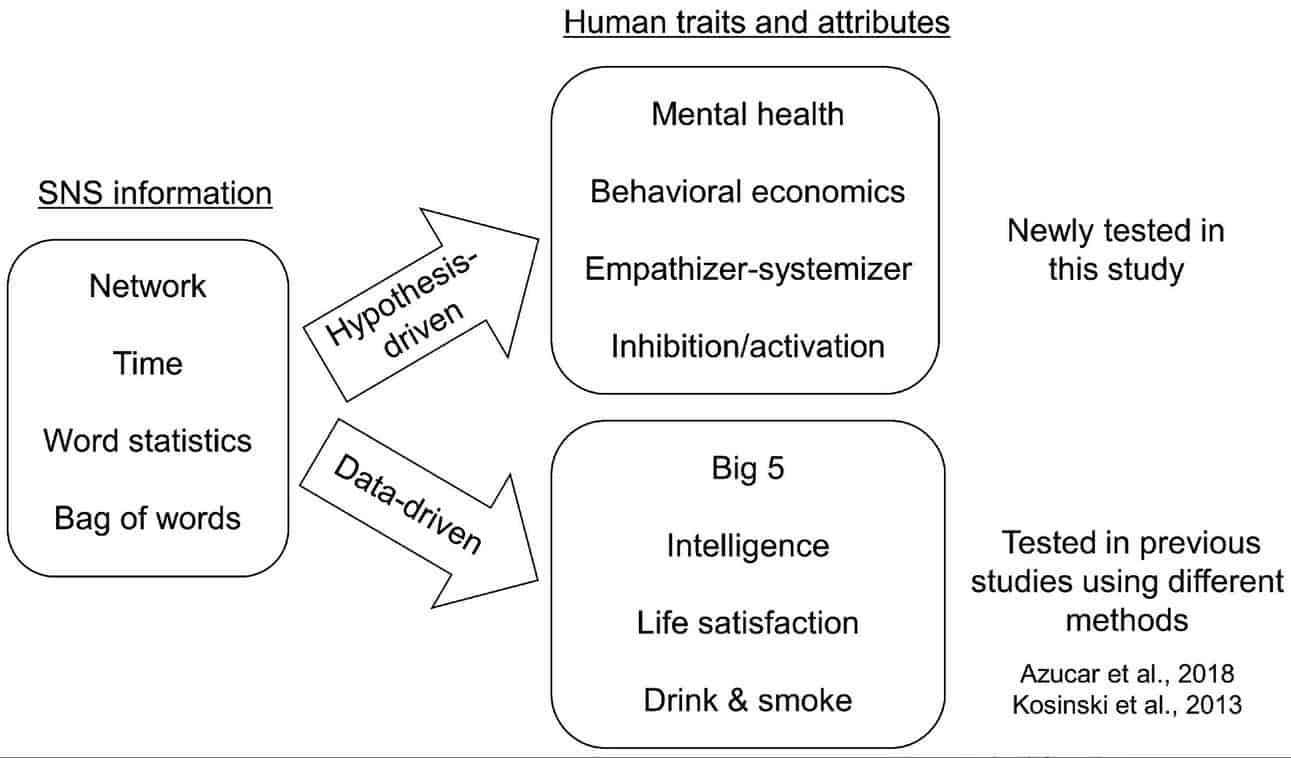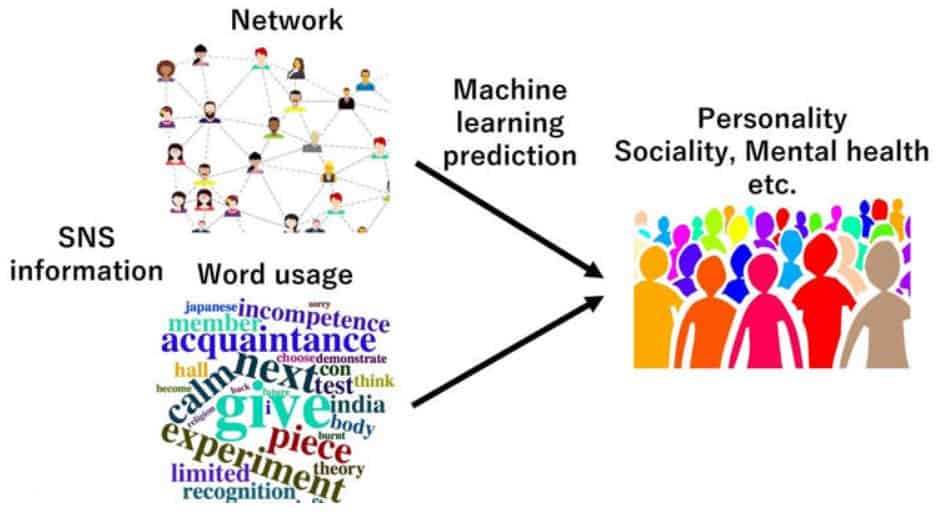Activity on Twitter can help scientists learn about personality traits and even possible mental illness through machine learning
Activity on Twitter can help scientists learn about personality traits and even possible mental illness through machine learning, according to Japanese researchers.
The number of tweets, the number of ‘likes’ and the use of certain words in Twitter posts can predict social personalities (for example, our level of extraversion) and mental health (for example, anxiety traits). Machine learning is capable of making those predictions.
This is what a group of Japanese researchers led by Masahiko Haruno and Kazuma Mori from the National Institute of Information and Communications Technology of Japan point out.
Specific attributes
Previous research had already shown that information about the use of Facebook and Twitter can reveal the five basic personality traits (openness to experience, conscientiousness, extraversion, agreeableness and neuroticism), although it was unknown what kind of information could be used to point out specific personality traits and attributes.

Haruno and Mori’s study, published in the scientific journal ‘Journal of Personality‘, found that a wide range of personality traits and attributes can be predicted by analyzing four different types of user behaviours on Twitter: characteristics of the network, time of usage, word statistics and word usage).
Using statistical analysis, they found significant correlations between measured personality and attribute scores and predictions. The values obtained, for the moment, are not sufficient to accurately determine the personality traits of an individual, but with a sufficiently large population sample, this technology can provide much more accurate results.

The study collected social media information from 239 participants (156 men and 83 women with a mean age of 22.4 years) who also took personality tests that measured 24 personality traits and attributes (52 subscales).
Of the 52 subscales, information from Twitter could be reliably used to predict 23 of them. The analysis revealed that several social personality traits, such as extraversion, empathy, and autism, could be predicted from the characteristics of the network.
The more subjects, the easier
Other personality traits such as socioeconomic status, smoking/drinking, and even depression or schizophrenia were predictable from the characteristics of language use.
The prediction from time was more difficult to correlate with the measured personalities, but it did show a significant correlation with intelligence and the orientation of social values.
“We are expanding the analysis to thousands of subjects. The method described in this study could be used to for mental health diagnostics and personalized nudges to act on people’s behaviors. It will also give insight on the neural mechanisms underlying individual differences in personality traits”, explain the authors in statements collected by Neuroscience News.
